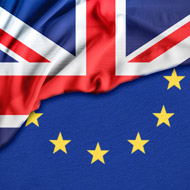Animal welfare is ‘a public good’ - Gove

Mr Gove pledged not to lower environmental or animal welfare standards as part of any new trade deals.
Secretary of state Michael Gove has said that investing in animal welfare is a clear public good, during his speech at the National Farmers’ Union Conference.
Mr Gove also pledged not to lower environmental or animal welfare standards as part of any new trade deals, as flourishing exports are down to the UK’s ‘gold standard’ reputation for fresh produce.
Whilst the UK has a “high baseline” for animal health, which will continue to be enforced, he said the government could support new industry-led initiatives to improve these standards - particularly in cases where animal welfare remains at the minimum required by law.
“This may include pilot schemes that offer payments to farmers delivering higher welfare outcomes, or payments to farmers running trial approaches and technologies to improve animal welfare that are not yet an industry standard.”
The comments were welcomed by BVA president John Fishwick: “It is essential that the UK’s post-Brexit agriculture policy recognises animal health and welfare as public goods.
“If we are to maintain our global reputation for high standards of animal health and welfare and improve our trade links with the rest of the world, any future investment in the UK farming industry must be targeted at measures to maintain and enhance those standards.”
The BVA expressed disappointment after Mr Gove’s speech at the Oxford Farming Conference in January, as his vision for post-Brexit agriculture policy did not include animal welfare as a public good.
“We are therefore delighted at this new statement which chimes with the veterinary profession’s commitment to continually improve animal health and welfare in the UK,” Mr Fishwick added.
Mr Gove also recognised the importance of labour from abroad, particularly official vets in abattoirs, of which 90 per cent are currently from EU nations.
“It’s already the case that the supply of labour from EU27 countries is diminishing as their economies recover and grow,” he added. “So, in the future, we will need to look further afield. And think more creatively.”



 The latest
The latest